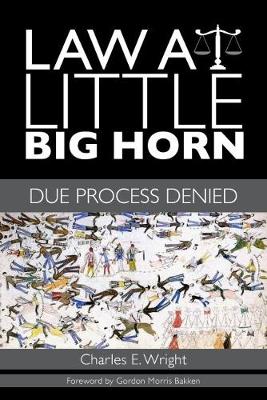Plains Histories
1 total work
During the nineteenth century, the rights of American Indians were frequently violated by the president and ignored or denied enforcement by federal courts. However, at times Congress treated the Indians with good faith and honoured due process, which prohibits the government from robbing any person of life, liberty, or property without a fair hearing before an impartial judge or jury. These due process requirements protect all Americans and were in effect when President Grant launched the Great Sioux War in 1876-without a formal declaration of war by Congress.
Charles E. Wright analyzes the legal backdrop to the Great Sioux War, asking the hard questions of how treaties were to be honoured and how the US government failed to abide by its sovereign word. Until now, little attention has been focused on how the events leading up to and during the Battle of Little Big Horn violated American law. While other authors have analyzed George Armstrong Custer's tactics and equipment, Wright is the first to investigate the legal and constitutional issues surrounding the United States' campaign against the American Indians.
This is not just another Custer book. Its contents will surprise even the most accomplished Little Big Horn scholar.
Charles E. Wright analyzes the legal backdrop to the Great Sioux War, asking the hard questions of how treaties were to be honoured and how the US government failed to abide by its sovereign word. Until now, little attention has been focused on how the events leading up to and during the Battle of Little Big Horn violated American law. While other authors have analyzed George Armstrong Custer's tactics and equipment, Wright is the first to investigate the legal and constitutional issues surrounding the United States' campaign against the American Indians.
This is not just another Custer book. Its contents will surprise even the most accomplished Little Big Horn scholar.
